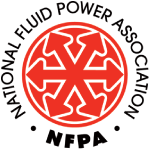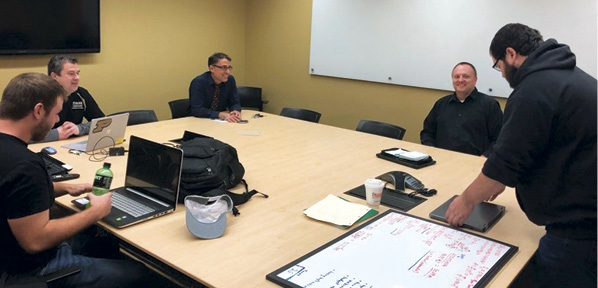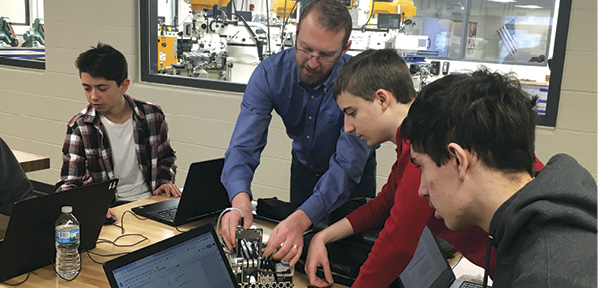NFPA Applies for Federal Funding to Support Education
by Eric Lanke, NFPA President/CEO
In early October 2016, NFPA submitted an application to the Advanced Technological Education (ATE) program of the National Science Foundation (NSF) to support fluid power technical education in the United States. The resulting program, should our application be approved, will be called FAMTEN (formerly described as FAMTEC)—the Fluid Power and Applied Mechatronics Training and Employment Network.
Here’s the executive summary that was included in the application, describing the strategy and rationale for this initiative:
The Fluid Power and Applied Mechatronics Training and Employment Network (FAMTEN), administered by the National Fluid Power Association (“NFPA”) in Milwaukee, Wis., is a collaborative workforce development network, led by technical education and curriculum experts at Alexandria Technical and Community College (“ATCC”) in Alexandria, Minn., which leverages industry partners and high school teachers to create awareness and interest in fluid power and mechatronics, and supports technical and community colleges to prepare students for high-skilled careers in manufacturing.
Pathways to the manufacturing workforce currently suffer from both supply and demand problems. The Bureau of Labor Statistics estimates that nearly 600,000 mechatronics or closely related positions will be open between 2012 and 2022. Compounding challenges in filling these jobs include negative perceptions of the manufacturing industry, a lack of awareness of appealing mechatronics careers, a national decline in high school graduates, and an existing workforce that is retiring at an increasing rate. Without a strong pool of qualified applicants, U.S. manufacturers are facing a shortage of labor that will lead to decreased production and off-shoring, putting our country’s economy at significant risk. Solutions are critically needed now.
Comprehensive mechatronics training and education is a necessary part of preparing a skilled manufacturing workforce, and fluid power (hydraulics and pneumatics) is an essential, but often lacking, discipline within a mechatronics curriculum. Mechatronics is an interdisciplinary subject that combines mechanical and electrical engineering and computer science. A typical mechatronic system picks up signals from the environment, processes them to generate output signals, and transforms those outputs into forces, motions, and actions. In a manufacturing environment, the actuation technology of choice is often fluid power. Hydraulics, with its high power-to-weight ratio, high torque at low speed, ability to hold torque constant, and ruggedness and reliability, is ideal for heavy-duty manufacturing processes such as forging, stamping, pressing, and work-holding. Pneumatics, with its low cost and weight profile, simple control systems, clean and non-reactive properties, and speed and precision, is ideal for lighter-duty manufacturing processes such as factory automation, assembly, material handling, and packaging.
Unfortunately, not enough technical and community colleges teach mechatronics, and of those that do, many insufficiently include fluid power in their curriculum. Indeed, this lack of sufficient fluid power instruction was identified even when reviewing the curricula of other ATE Centers and Projects that focus on mechatronics. A study of the existing NSF ATE Projects and/or Centers revealed the total absence of fluid power-focused mechatronics. The study included an evaluation of the content, delivery, geography, and outreach elements of existing ATE projects. This criteria was used to compare and contrast the FAMTEN concept with other existing education and outreach models in mechatronics technician programs.
FAMTEN is proposed to serve as a network headquartered at a technical college partner institution, offering fluid power and applied mechatronics college and high-school curriculum which meets a common set of FAMTEN fluid power core competencies. The partnering technical college will serve as the hub within the FAMTEN system, coordinating a robust high school outreach program, a teacher professional development program, and a fluid power-based mechatronics curriculum, all in collaboration with, and mentored by, industry partners.
This FAMTEN outreach and education model is a replica of a successful initiative between Minnesota’s 3M Corporation and ATCC. This experimental program emerged from informal discussions between 3M and ATCC as a way to respond to 3M’s manufacturing workforce needs. The vision was to create awareness, interest, and change perceptions of careers in manufacturing. One of the program’s most impactful strategies is to engage directly with high school teachers and classrooms in the communities of 3M’s manufacturing facilities. FAMTEN will expand this model with a much wider industry base to fill technical and community college classrooms with interested and motivated students and to fill technical positions with qualified, highly skilled employees. Based on U.S. Census Bureau data, it can be estimated that 846 companies in 47 states are involved in the manufacture of fluid power pumps, motors, valves, cylinders, actuators, hoses, and fittings. An analysis of the companies that use those products in their manufacturing processes or in their own manufactured products, however, yields even greater results. Ten of the largest fluid power-consuming industries represent an estimated 23,700 companies in all 50 states. NFPA, as the national trade association representing the fluid power industry, is uniquely positioned to engage with this industry base in its role as FAMTEN administrator.
The FAMTEN model is therefore a collaborative, pathway-based workforce development system. Industry partners will interface with high school students through the FAMTEN hands-on curriculum and application-based teaching modules. This interaction will help change negative perceptions of the manufacturing environment and allow the industry partner to coach, encourage, and support a student’s interest in manufacturing careers. The partnering technical college, serving as the FAMTEN hub, will provide teachers professional development to ensure the high schools have the ability to reach many students, year after year. The FAMTEN hub will meet a set of validated fluid power learning objectives and core competencies, which may result in embedding fluid power modules, designed by ATCC faculty and vetted by industry partners, into courses wherever it is strategically relevant. This fluid power mechatronics program within the technical college will receive and educate high school graduates for careers in the manufacturing industry, with the same industry partners working collaboratively with the technical colleges to refine the base FAMTEN curriculum to their local needs, and to hire the resulting highly trained college graduates. FAMTEN’s long-term vision includes clusters of FAMTEN hubs across the United States serving strategic and geographically relevant areas of the country.





